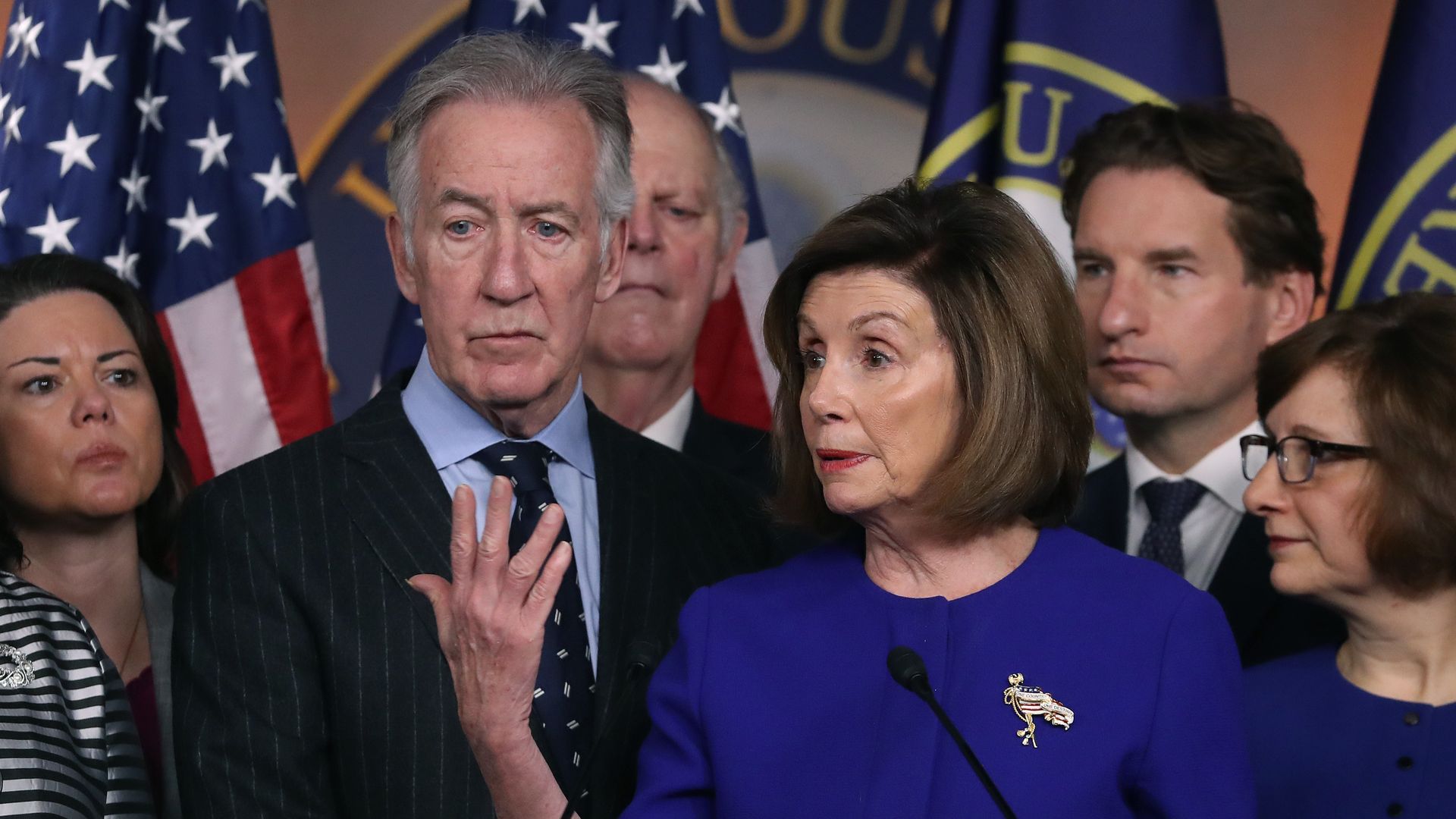Dec 10, 2019
Pelosi loses push to strip tech liability shield from USMCA
Add Axios as your preferred source to
see more of our stories on Google.

House Speaker Nancy Pelosi discusses the United States–Mexico–Canada Agreement at a Dec. 10 news conference on Capitol Hill. Photo: Mark Wilson/Getty Images.
